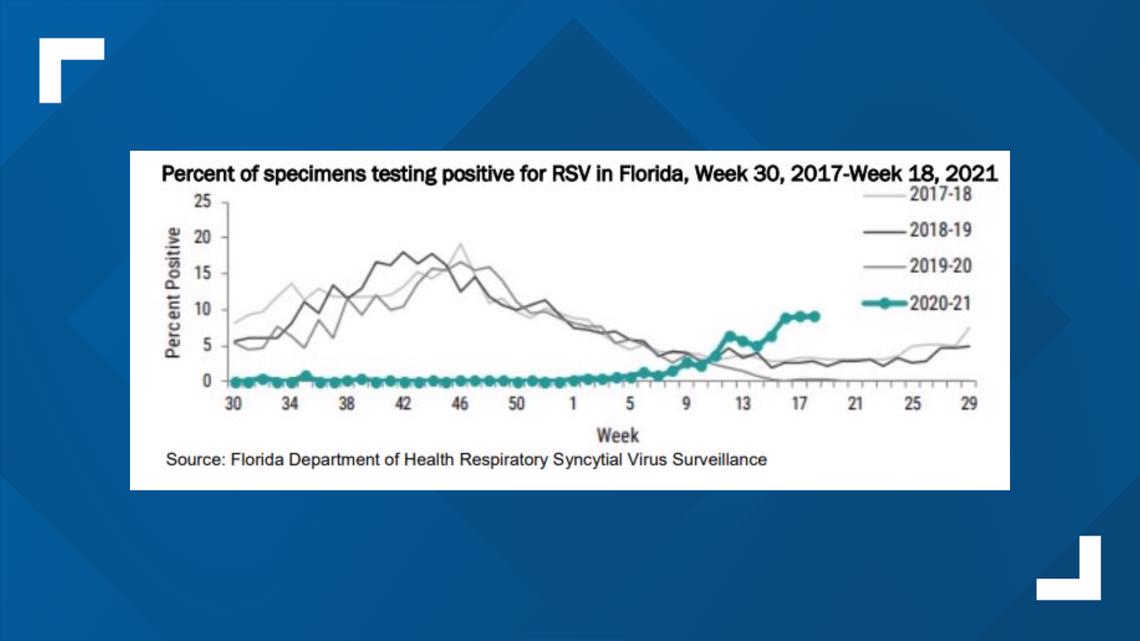The Central Florida RSV season usually lasts from August-March however in recent weeks the Department of Health saw a big uptick in RSV cases.
TAMPA, Fla. — Respiratory Syncytial Virus, better known as RSV, is a common infection typically seen during the winter months.
Symptoms include a runny nose and a cough, similar to a typical common cold, and most people recover without complication. However, it can be very dangerous in children age two and younger.
“In younger children, it can cause a big problem especially with breathing, eating, that sort of thing. The younger you are, the bigger the problem it can cause,” said Dr. Joseph Perno, the Chief Medical Officer at Johns Hopkins All Children’s Hospital in St. Petersburg, Florida.
For most of 2020 and the first part of 2021, Perno said Johns Hopkins All Children’s Hospital wasn’t seeing many cases of RSV but now they’ve seen almost 200 cases in the last three months.
Medical experts think the dramatic surge in RSV cases is a result of people getting back to normal and socializing without masks.
“People were social distancing, wearing masks, we’ve been stressing hand-washing so just like COVID, it’s going to work against routine viruses as well, that’s why we saw no flu,” explained Perno.
A recent newsletter sent out by the Florida Department of Health in Pinellas County said several outbreaks of RSV in childcare facilities have been reported across the state.
The graph below shows when RSV usually peaks in years past (gray lines) versus the spike we’re seeing in 2021 (teal line).

Credit: Florida Dept. of Health
While most children recover from the virus, doctors urge parents to closely monitor their children.
If your child is struggling to breathe, you should bring them into the emergency room.
“It shouldn’t look like they’re running a race when the skin is sucking in under the ribs, when the nasal is flaring in and out. Those are signs the child is working hard to breathe and needs to come in,” said Perno.
Dr. John Prpich is a pulmonologist at St. Joseph’s Children’s Hospital in Tampa.
He too is seeing a dramatic spike in cases. Prpich encourages families to be extra vigilant about children who are most high risk for complications from RSV including babies six months old and younger, premature infants, or children born with congenital heart disease or chronic lung problems.
https://www.wtsp.com/article/news/health/rsv-babies-tampa-bay/67-5b4d543c-c7c9-46d8-a76e-9d0e8843a398
